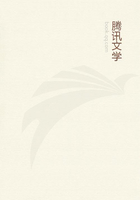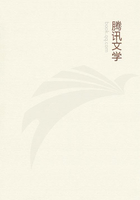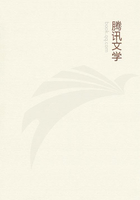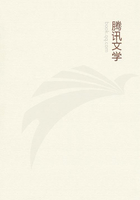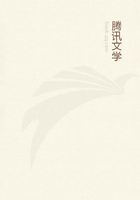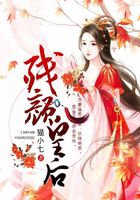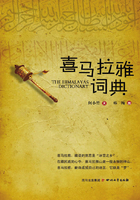To write with authority about another man, we must have fellow-feeling and some common ground of experience with our subject. We may praise or blame according as we find him related to us by the best or worst in ourselves; but it is only in virtue of some relationship that we can be his judges, even to condemn. Feelings which we share and understand enter for us into the tissue of the man's character; those to which we are strangers in our own experience we are inclined to regard as blots, exceptions, inconsistencies, and excursions of the diabolic; we conceive them with repugnance, explain them with difficulty, and raise our hands to heaven in wonder when we find them in conjunction with talents that we respect or virtues that we admire. David, king of Israel, would pass a sounder judgment on a man than either Nathaniel or David Hume. Now, Principal Shairp's recent volume, although I believe no one will read it without respect and interest, has this one capital defect - that there is imperfect sympathy between the author and the subject, between the critic and the personality under criticism. Hence an inorganic, if not an incoherent, presentation of both the poems and the man. Of HOLY WILLIE'S PRAYER, Principal Shairp remarks that "those who have loved most what was best in Burns's poetry must have regretted that it was ever written." To the JOLLY BEGGARS, so far as my memory serves me, he refers but once; and then only to remark on the "strange, not to say painful," circumstance that the same hand which wrote the COTTER'S SATURDAY NIGHT should have stooped to write the JOLLY BEGGARS. The SATURDAY NIGHT may or may not be an admirable poem; but its significance is trebled, and the power and range of the poet first appears, when it is set beside the JOLLY BEGGARS. To take a man's work piecemeal, except with the design of elegant extracts, is the way to avoid, and not to perform, the critic's duty.
The same defect is displayed in the treatment of Burns as a man, which is broken, apologetical, and confused. The man here presented to us is not that Burns, TERES ATQUE ROTUNDUS - a burly figure in literature, as, from our present vantage of time, we have begun to see him. This, on the other hand, is Burns as he may have appeared to a contemporary clergyman, whom we shall conceive to have been a kind and indulgent but orderly and orthodox person, anxious to be pleased, but too often hurt and disappointed by the behaviour of his red-hot PROTEGE, and solacing himself with the explanation that the poet was "the most inconsistent of men." If you are so sensibly pained by the misconduct of your subject, and so paternally delighted with his virtues, you will always be an excellent gentleman, but a somewhat questionable biographer.
Indeed, we can only be sorry and surprised that Principal Shairp should have chosen a theme so uncongenial. When we find a man writing on Burns, who likes neither HOLY WILLIE, nor the BEGGARS, nor the ORDINATION, nothing is adequate to the situation but the old cry of Geronte: "Que diable allait- il faire dans cette galere?" And every merit we find in the book, which is sober and candid in a degree unusual with biographies of Burns, only leads us to regret more heartily that good work should be so greatly thrown away.
It is far from my intention to tell over again a story that has been so often told; but there are certainly some points in the character of Burns that will bear to be brought out, and some chapters in his life that demand a brief rehearsal.
The unity of the man's nature, for all its richness, has fallen somewhat out of sight in the pressure of new information and the apologetical ceremony of biographers.
Mr. Carlyle made an inimitable bust of the poet's head of gold; may I not be forgiven if my business should have more to do with the feet, which were of clay?
YOUTH.
Any view of Burns would be misleading which passed over in silence the influences of his home and his father. That father, William Burnes, after having been for many years a gardener, took a farm, married, and, like an emigrant in a new country, built himself a house with his own hands.
Poverty of the most distressing sort, with sometimes the near prospect of a gaol, embittered the remainder of his life.
Chill, backward, and austere with strangers, grave and imperious in his family, he was yet a man of very unusual parts and of an affectionate nature. On his way through life he had remarked much upon other men, with more result in theory than practice; and he had reflected upon many subjects as he delved the garden. His great delight was in solid conversation; he would leave his work to talk with the schoolmaster Murdoch; and Robert, when he came home late at night, not only turned aside rebuke but kept his father two hours beside the fire by the charm of his merry and vigorous talk. Nothing is more characteristic of the class in general, and William Burnes in particular, than the pains he took to get proper schooling for his boys, and, when that was no longer possible, the sense and resolution with which he set himself to supply the deficiency by his own influence.
For many years he was their chief companion; he spoke with them seriously on all subjects as if they had been grown men; at night, when work was over, he taught them arithmetic; he borrowed books for them on history, science, and theology; and he felt it his duty to supplement this last - the trait is laughably Scottish - by a dialogue of his own composition, where his own private shade of orthodoxy was exactly represented. He would go to his daughter as she stayed afield herding cattle, to teach her the names of grasses and wild flowers, or to sit by her side when it thundered.

